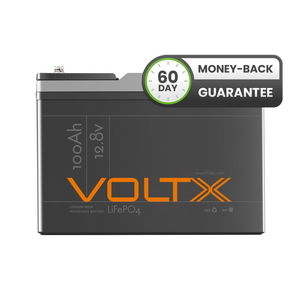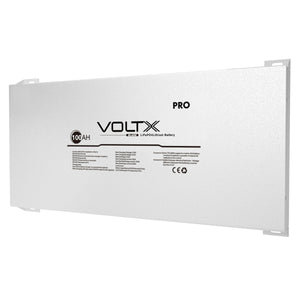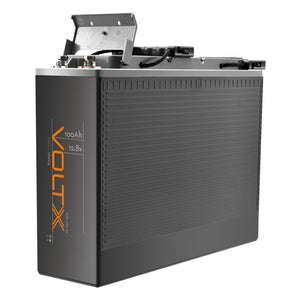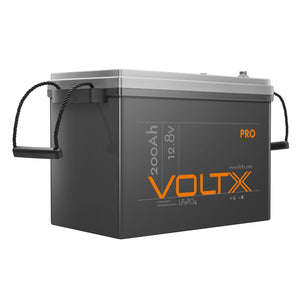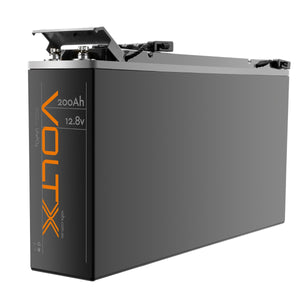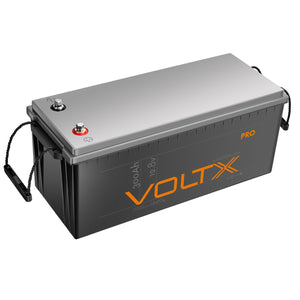What Is a Battery Cell? A cell is the smallest unit of battery made up of four main components including anode, cathode, electrolyte, and separator. Cells play a crucial role in a battery's overall performance and there are various kinds of this depending on the application. A battery can also be made up of single or multiple cells. For instance, the usual AA batteries you see is one cell only, while car batteries usually contain six cells with 2.1V each.
Battery cells can also be either primary or secondary. Primary cells are backed with irreversible chemistry, meaning that your battery cannot be used anymore after it is dead. Secondary cells, meanwhile, can be recharged back to their original state, hence they are more commonly known as "rechargeable batteries."
Among the most common single-cell battery is the button cell, which is usually found in small electronic devices and watches. Popular button cell batteries would include LR44 batteries and CR2032 batteries. Battery cells play a big role in your camping battery packs too. Lithium batteries like LiFEPO4, in particular, have their own types of cells which vary not just in structure but in applications as well.
What Are the Types of Lithium Battery Cells?
Lithium battery power packs have three kinds of cells: cylindrical, prismatic, and pouch cells. Let's look at them one by one and use a lithium iron phosphate battery LiFEPO4 as a basis.
Cylindrical lithium cells: These are what usually comprises traditional batteries like an AA battery. Cylindrical lithium cells were first made available in the 1990s and have varying widths, lengths, and amp-hours. They are also suitable for use in both small and large battery packs. However, this cell type is better suited for smaller batteries or applications including power tools, toys, and medical equipment as these have limited space and should weigh light enough to be comfortably held for long periods of time.
Prismatic lithium cells: Rectangular-shaped with a larger capacity, prismatic cells are what you will find inside your laptop. They are also fitted for heavy-duty batteries like camping batteries, as this is what some LiFEPO4s are made of. It offers increased amp-hours per cell by having more lithium, which allows for larger battery pack configurations. This is perhaps the best out of all cell kinds, and are in fact highly recommended for batteries used in energy storage devices.
Lithium pouch cells: This is an aluminium foil pouch that contains a lithium iron phosphate polymer chemistry. It can hold the most lithium per volume and can be used directly without needing to be enclosed in a battery case. They also packed more density compared to previous types due to their use of lithium polymer.
Additionally, before choosing which cell you want your battery to have, it's important to determine whether you will need a power cell or energy cell first. Power cell delivers a high amount of current over a short period of time, making them perfect for higher rate or starter applications. Energy cells are the opposite. They are designed to provide continuous current for extended periods, so they're generally suited for camping batteries or for cyclic applications like electronic bikes.
How Many Cells Does a 12V Lithium Battery Have?
The number of cells in a lithium battery depends on the amount of voltage it holds. A 12V LiFEPO4 pack will typically have four cells connected in a series, which makes its nominal voltage 12.8V. Add in another four cells and you'll have a 24V battery with a 25.6V. Sixteen cells in series make up a 48V battery, with a nominal voltage of 51.2V. If you’re going to use the battery for camping or as a backup in case of power failures, it’s best that you go for LiFEPO4 as it offers better capacity, built-in safety features, and a longer lifespan. It’s non-toxic and incombustible as well, great even for first-time users.
More from Outbax
Buying a new battery for camping? Now that you know the basics when it comes to battery cells, you can go ahead and choose the best battery pack for you. Here’s a tip: Have a look at Outbax’s range of LiFEPO4 batteries. They’re a win in safety, performance, and longevity, plus we offer them at a more affordable price! Outbax is your go-to shop for quality camping equipment that will not drain your pockets and our collection of reliable supercheap batteries, inverter generators, and solar panels are sure to delight any camper out there!
